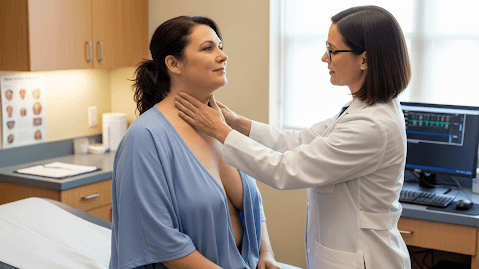
Understanding Alzheimer's and Dementia: A Personal Journey
Many residents in Salt Lake City, like those elsewhere, find themselves grappling with the complexities of cognitive health, particularly when faced with conditions like Alzheimer's and dementia. For friends and family members of those diagnosed, the confusion surrounding these terms can be overwhelming. This article seeks to clarify key differences and provide a deeper understanding of these conditions, ensuring that we approach cognitive health with compassion and knowledge.
What Are Alzheimer's and Dementia?
First, it’s essential to define both Alzheimer’s disease and dementia. Dementia is an umbrella term used to describe a range of symptoms affecting memory, thinking, and social abilities severely enough to interfere with daily life. Alzheimer’s is the most common cause of dementia, accounting for approximately 60-70% of dementia cases. In essence, while all Alzheimer’s is dementia, not all dementia is Alzheimer’s.
The Symptoms: Recognizing the Differences
Recognizing symptoms is crucial in differentiating these two conditions. Alzheimer's disease symptoms typically start with memory loss that disrupts daily life, while dementia’s symptoms can include memory loss as well but also affect reasoning, communication, and visual perception. Families in Salt Lake City might notice these symptoms at different rates, emphasizing the need for early detection and consultation with healthcare providers.
Who Is Affected? Demographics in Salt Lake City
According to recent studies, Alzheimer's disease and other dementias are not confined by geographic boundaries. However, demographic trends suggest a significant prevalence among the senior population in Salt Lake City. With its growing elderly population, understanding these conditions is vital for families, caregivers, and the surrounding community.
Common Misconceptions Around Alzheimer's and Dementia
One prevalent misconception is that dementia is a normal part of aging. Although cognitive decline can be part of aging, severe symptoms indicative of dementia or Alzheimer’s are not. Such myths end up delaying proper diagnosis and treatment, and it’s crucial to dispel these to promote awareness and understanding in our community.
Diagnosis and Treatment Options
When facing uncertainties regarding cognitive decline, consulting healthcare professionals is paramount. Diagnostic processes often involve a series of tests to measure cognition and rule out other possible issues. Treatment varies significantly; while Alzheimer’s medications may help with symptoms, varying types of therapies, dietary changes, and lifestyle adjustments can positively impact dementia symptoms. Salt Lake City residents are encouraged to engage in community resources that offer support and information about cognitive health.
Creating Support Systems and Resources
As Alzheimer's and dementia affect more families, robust support systems become crucial. Local organizations in Salt Lake City, such as the Alzheimer’s Association Utah Chapter, provide resources, education, and support networks to assist families. Engaging in local support groups can create a sense of community and sharing among caregivers who often face isolation.
Taking Action: What You Can Do
Education is the first step toward tackling the challenges that Alzheimer’s and dementia present. For Salt Lake City residents, attending local workshops, seeking out diverse perspectives in the community, and staying informed on the latest research can empower families facing these realities. Additionally, promoting cognitive health through individual wellness strategies such as physical activity, nutrition, and social interaction can significantly enhance quality of life.
Support and Awareness
Understanding the differences between Alzheimer’s and dementia is essential for anyone experiencing these life-altering diseases. By staying informed, fostering community connections, and supporting one another through these challenging times, Salt Lake City can grow stronger and more resilient. As we learn to address these conditions with empathy and understanding, we can better support those affected, fostering a community rooted in care and awareness.
 Add Row
Add Row  Add
Add 




Write A Comment